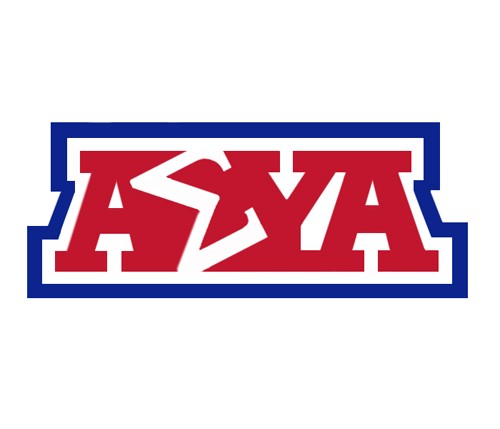“”When you know someone, that is really an in,”” Johanne Jensen, director of UA’s Fraternity and Sorority Programs, said when asked which Greek Life students would be best to interview.
For the Associated Students of the University of Arizona, the same standard holds true.
Most ASUA appointments are from within, with either ASUA or ASUA-affiliates standing a better chance than unaffiliated students. Likewise, legacy sons and daughters rushing sororities and fraternities have a much better chance of getting into their Greek Life house of choice.
Numbers
Only 12 percent of the student population is in Greek Life. Out of the 13 elected executive positions, six members are in social fraternities or sororities. Both parties feel it is a misconception that this unites the groups in any unique way.
“”Many of the Student Government leaders and officers of numerous other organizations on campus are involved with the Greek community,”” is one of the credos boasted under benefits of Greek Life on the Fraternity and Sorority Programs website.
However, not everyone agrees.
Elections
The biggest boon it seems for many who are a part of both organizations is actually being elected to ASUA.
As in any election, having a consolidated group vote, a “”niche market”” voting one particular way is very powerful, Jensen said, noting the ability of those in Greek Life and those with the support of the UA’s Greek community to effectively run for ASUA positions, “”especially with Emily (Fritze) being Greek this year.””
Students have their own relationship with ASUA that Jensen noted is different than the staff’s. But neither the president nor the communications officer of the Panhellenic council, the governing board for social sororities on campus, could be reached for comment by press time.
Especially with new ASUA election codes that mandate candidates to obtain hundreds of votes before they register and run as an official candidate, it seems there might be some truth to that sentiment
In last year’s elections, Sen. Mary Myles, a pre-business sophomore and member of Chi Omega sorority, received the most votes, 1,529, for ASUA senate. The 10th-place candidate, interdisciplinary senior Deanna Mariner, is a member of Alpha Phi Omega, a national service fraternity and still had to garner more than 950 votes.
Perception
“”There’s this perception,”” ASUA President Emily Fritze said in a previous interview with the Arizona Daily Wildcat. “”It’s out there (that) people in ASUA are in Greek Life or in a professional fraternity or sorority.””
She stressed that just because a student is not in Greek Life, it does not mean they cannot be involved and be successful in ASUA.
One of Fritze’s stated missions as president this year is to engage students who otherwise might not think they have a place in ASUA to consider running. Fritze is also working to demystify some of the more private elements of the job of student body president through a blog.
Funding
The ASUA bylaws mandate that there be a liaison in student government for Greek Life and that these organizations get a piece of the club funding pie, which topped $143,000 from 2009-10 and $138,575 for this academic year.
In total, the professional, National Pan-Hellenic Council or United Sorority and Fraternity Council fraternities and sororities who applied for and received funding garnered $14,691.92 last year, 10.6 percent of the club funding budget. No Panhellenic sororities or Inter-Fraternity Council fraternities applied for money.
Between social and professional fraternities, 63 of the nearly 200 recognized clubs on the ASUA website as of Sept. 8. are Greek affiliated.
Reasoning
Since many sororities and fraternities have mandates that require students to be involved outside clubs, some utilize ASUA as a way to be active in the UA community.
“”We work with ASUA with club recognition and funding, since Greek fraternities and sororities are officially recognized clubs at the UA and that is mostly it,”” Jensen said. “”Outside of that, whenever there is a program, (ASUA) may come to us and say ‘I have this philanthropic project. I know you guys are into philanthropy. Can I advertise this to your chapters?'””
In speaking with the Wildcat about her senate initiatives for the year, Sen. Taylor Bilby, a pre-business sophomore and member of Alpha Delta Pi sorority and Alpha Kappa Psi, a professional business fraternity, noted her membership in both helps her market her initiatives more effectively. One such initiatives is her Tanzb?deli project, a music and arts festival she hopes to turn into an annual event to raise money for breast cancer research.
This Year
Jensen also said that her focus is on the experience of Greek Life students and dealing with other staff members to better that experience, so their outreach is limited. An example of the groups working together is Fat Talk Free Day, an initiative with the Women’s Resource Center, an ASUA funded organization, and sorority Delta Delta Delta’s, to discuss weight and body issues in October. She feels that, though Greek Life affiliation might be helpful for election purposes, it does not garner other unintended benefits for Greek members.
The only funding a Greek organization has sought from the ASUA senate this year is more than $4,500 for the National Pan-Hellenic Council, a representative group which heads traditionally African-American sororities and fraternities — and their request has been tabled for later discussion.









